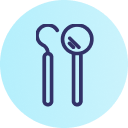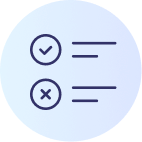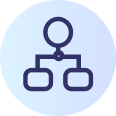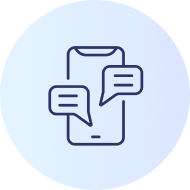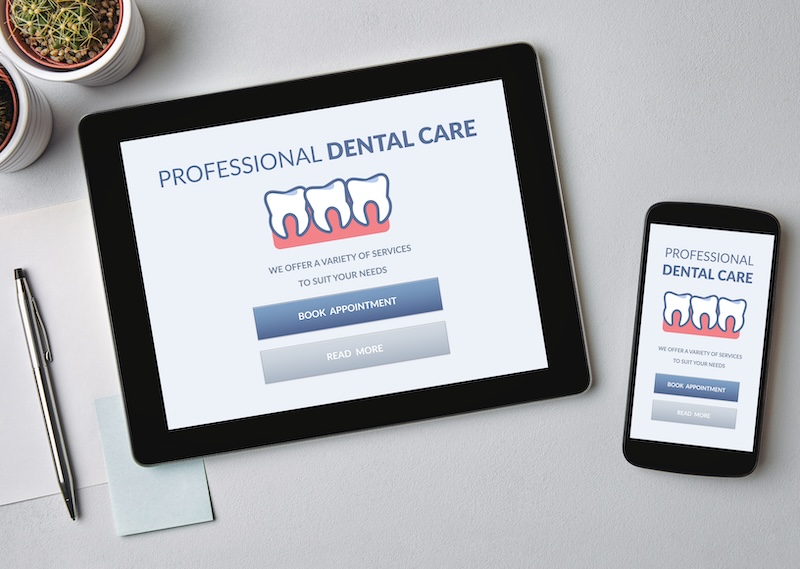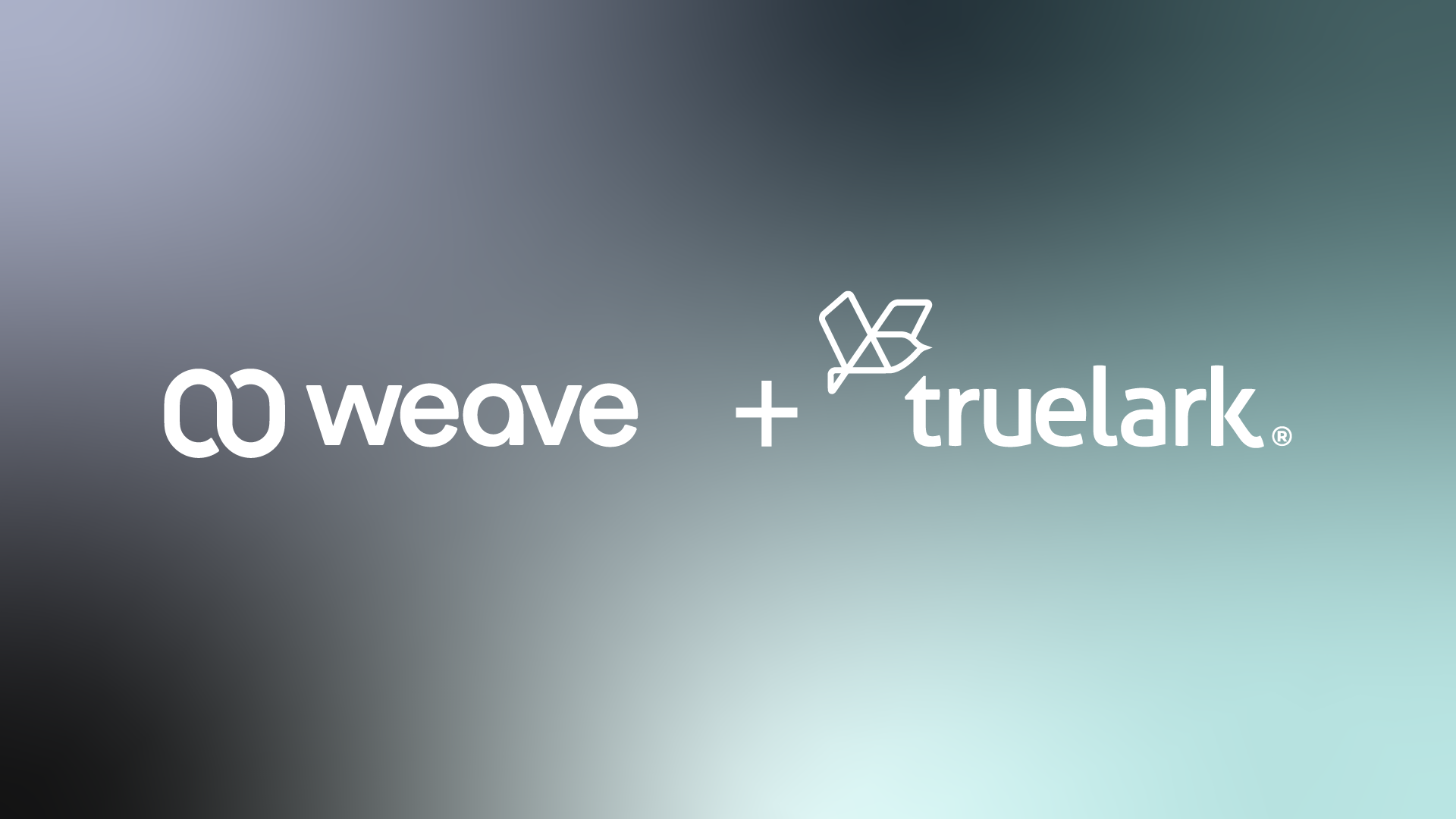In the dental industry, Dental Support Organizations contract with existing practices (or launch them from scratch) to provide non-clinical operational support. This leaves dentists free to focus solely on patient care without worrying about practice business administration.
Non-clinical functions include marketing, accounting, financing, Human Resources, and patient support. Furthermore, patient support includes managing centralized call centers as well as patient communications at individual practices. A DSO’s proficiency at designing and managing patient support is key to profitability for the DSO and partner dentists. Just as importantly, profitability determines the rate and speed of return for investors.
One of the main competitive advantages DSOs leverage is that of operational expertise. They are able to use many optimization strategies to increase the value and profitability of already-profitable practices. These have a compounding effect and can produce a return on investment within just 3-5 years, even after paying the owner for acquisition. Everything DSO
How AI can reduce your DSO call center costs
Traditionally, call centers were seen as drains on revenue, handling low-value interactions and complaints. However, this mindset is outdated, and there are compelling reasons to invest in dental AI software for call centers. DSO call centers are the first point of contact for patients seeking appointments, information, and assistance. In this digital age, where technology is transforming healthcare, integrating AI-powered solutions can revolutionize DSO contact centers. Here are six ways AI-driven software can reduce call center costs:
- Task automation
- Priority call routing and response
- Demand forecasting for staffing
- Reduced training costs
- Increased scalability
- Enhanced data insights
Task automation
AI-driven software streamlines DSO call center operations by automating routine and repetitive tasks, demonstrating how AI reduces DSO call center costs significantly. Tasks like appointment scheduling, sending dental patient reminders, updating patient records, verifying insurance, and answering FAQs can be handled seamlessly by AI, freeing up agents to focus on more complex patient needs. By automating these workflows, DSOs can reduce the time spent on manual processes while ensuring consistent, error-free performance across all interactions.
Priority call routing and response
AI-powered systems improve patient satisfaction and reduce costs by prioritizing calls and routing them intelligently. Acting as an AI dental receptionist, advanced algorithms analyze incoming calls in real time, assessing urgency and content to ensure high-priority patients receive immediate attention. Routine inquiries can be handled by AI chatbots, while more complex cases are directed to skilled agents.
This capability minimizes wait times and ensures efficient use of agent time. By streamlining call handling and reducing unnecessary escalations, DSOs can provide better service with fewer resources, optimizing both patient experience and call center costs.
Demand forecasting for call center staffing
AI-driven software helps DSOs predict call volumes more accurately, ensuring call centers are appropriately staffed without over- or under-scheduling. Advanced machine learning models analyze historical data, seasonal trends, and even external factors to forecast demand, allowing call centers to align staffing with actual needs.
This precise forecasting prevents unnecessary labor costs during low-demand periods and reduces the risk of being overwhelmed during peak times. The result is a more balanced, cost-efficient approach to staffing that keeps operational expenses in check while maintaining high service quality.
Reduced training costs
With AI handling routine interactions and providing real-time support to agents, there is less of a need for extensive training. New hires can focus on developing skills for handling complex issues, while AI guides them through less familiar tasks in real time.
Additionally, AI systems equipped with natural language processing and machine learning continuously improve, requiring minimal updates from human trainers. This reduces the frequency and cost of training sessions, enabling DSOs to maintain a high-performing team without excessive investment in ongoing education.
Increased scalability
AI solutions allow DSO call centers to scale effortlessly as patient volumes grow. Unlike traditional systems, AI-driven platforms can handle increased workloads without requiring additional staff or infrastructure. Whether managing a surge in patient inquiries or supporting new practice locations, AI can handle simultaneous interactions across channels like text, voice, and chat.
This scalability ensures DSOs can grow their operations without incurring proportional increases in operational costs. By maintaining consistent service quality across a larger patient base, AI enhances both cost efficiency and patient satisfaction.
Enhanced data insights
AI-powered software delivers actionable insights by analyzing patient interactions and call center performance. Real-time analytics reveal patterns in patient inquiries, identify frequent pain points, and track agent performance, enabling DSOs to optimize processes and improve service.
These insights also support data-driven decision-making for staffing, resource allocation, and patient engagement strategies. By understanding patient needs and call center dynamics more comprehensively, DSOs can continually refine their operations, reducing costs and boosting overall efficiency.
What is AI-powered call center software?
AI-powered DSO call center software is a sophisticated technological solution that integrates Artificial Intelligence and automation into the operations and management of call centers. This software leverages AI algorithms, generative AI, natural language processing (NLP), machine learning, and other technologies to enhance the efficiency, effectiveness, and patient experience within a call center environment.
Don’t confuse today’s advanced AI communications platforms for menu-driven chatbots. Today’s full-service AI solutions can engage with patients in real-time. This provides seamless communication that enhances the patient experience and streamlines operations.
“Cognitive technologies such as natural language processing, speech recognition, process automation and robotics are the key to helping customer contact center operations drive experiences that are more personal, intuitive and empathetic—and that are also faster, more automated and more scalable.” Deloitte
AI-powered DSO call center software features and benefits
Let’s look at specific functions of DSO call center platforms and discuss the features and benefits that AI-powered call center software deliver to DSOs:
- Automated call routing
- Predictive dialing
- Virtual agents or AI chatbots
- Speech analytics
- Real-time insights
- Automated responses
- Language translation
- Emotion detection
- Customer data integration
- Self-service options
- Call prioritization
- Continuous learning
- Call analytics and reporting
Automated call routing
AI algorithms analyze incoming calls and route them to the most appropriate agent or department based on the caller’s needs, historical data, and other relevant factors.
Predictive dialing
AI software predicts agent availability and call outcomes, enabling the system to initiate outbound calls at optimal times to maximize productivity.
Virtual agents or AI chatbots
AI-powered chatbots handle routine customer inquiries and tasks through text or voice interactions, freeing up human agents to handle more complex issues.
Speech analytics
AI communications software analyzes customer-agent interactions to identify sentiment, trends, and insights, helping improve agent training, customer satisfaction, and service quality.
Real-time insights
AI software real-time data and analytics allows supervisors to monitor call center metrics, agent performance, and customer interactions to make informed decisions.
Automated responses
AI-enabled systems can provide immediate responses to common inquiries, reducing hold times and improving the overall customer experience.
Language translation
AI platforms that can translate conversations in real-time enable agents to communicate effectively with customers who speak different languages.
Emotion detection
AI can detect the emotional state of callers based on voice tone and language, helping agents tailor their responses to provide empathetic support.
Customer data integration
The software integrates with CRM systems to provide agents with relevant customer information, enabling personalized interactions.
Self-service options
AI-powered self-service options allow customers to access information and perform tasks without agent assistance, such as scheduling/rescheduling appointments or checking the status of account balances.
Call prioritization
A quality AI solution prioritizes follow-up calls which helps agents quickly see which callers need a call back. The AI can handle the vast majority of interactions which allows staff to focus on the complex issues that require a human.
Continuous learning
AI systems learn and adapt over time, improving accuracy, efficiency, and customer interactions as they process more data.
Call analytics and reporting
AI-powered dental analytics software provides valuable insights into call center performance, patient engagement, and trends. DSOs can use these insights to make informed decisions to enhance overall operations.
“We estimate that applying generative AI to customer care functions could increase productivity at a value ranging from 30 to 45 percent of current function costs.” McKinsey & Company
Overall, AI-powered call center software improve the efficiency and effectiveness of call center operations. Optimizing agent and front desk team productivity drives better business outcomes. In addition, it empowers DSOs and affiliated practices to deliver a seamless, personalized, and efficient patient experience.
TrueLark AI software for DSO call centers
The TrueLark AI Control Center is a central hub for managing patient communications across your entire organization—from centralized call centers to individual front offices. It unifies conversations across voice, text, and web, ensuring every patient interaction is consistent, efficient, and handled instantly. Adopting TrueLark isn’t just a tech upgrade—it’s a strategic move toward a more efficient, scalable, and patient-first future. Built specifically for the unique demands of DSOs, TrueLark’s AI doesn’t just assist your team—it performs like one. From automating scheduling to intelligently managing patient interactions across channels, TrueLark brings enterprise-grade automation to the front lines of your operations.
Enhanced productivity: automated appointment scheduling
One of the primary challenges faced by DSO call centers is managing appointment scheduling. TrueLark enables automated appointment scheduling based on patient preferences, availability, and clinic schedules. Patients can book appointments 24/7 through text messages or online platforms, reducing the workload on call center agents.
Improved efficiency: instant responses and information access
Patients often reach out to call centers for routine inquiries, such as business addresses, billing information, or general dental care queries. TrueLark’s AI can instantly provide accurate responses to these routine questions, saving call center agents valuable time. This allows agents to focus on more complex tasks that require human intervention, such as handling patient emergencies or addressing specialized issues.
Personalized patient engagement: tailored communication
TrueLark’s AI isn’t just responsive—it’s purpose-built for DSOs and engineered to deliver the most advanced patient engagement in the industry. Unlike generic automation tools, TrueLark uses proprietary AI to engage in human-like, personalized interactions at scale. It learns from past conversations and patient data to tailor responses, recommend next steps, and drive task completion—whether that’s booking an appointment, rescheduling, or answering nuanced questions. The result is a more empathetic, intelligent patient experience that builds trust and drives loyalty across every location.
Scalability: accommodating growth with ease
One of the most significant advantages of integrating TrueLark into DSO call centers is its scalability. As DSOs expand and patient volumes increase, traditional call centers may struggle to handle the growing demands. TrueLark’s AI-powered system can seamlessly handle a high volume of patient inquiries simultaneously, ensuring that patient communication remains smooth and efficient even during periods of rapid growth. In addition, TrueLark centralizes and integrates omnichannel customer service across DSO call centers and practice front desk teams.
In the world of DSOs, call centers serve as the frontline for patient interactions. Incorporating TrueLark’s dental patient communications software empowers DSOs to provide exceptional patient care while reducing their call center costs and optimizing operations for growth and ROI.
Our case study on The Smilist DSO shows how TrueLark AI reduces call center costs and helps multi-location practices grow their organization.
Book a demo to see firsthand how TrueLark AI solutions can help your organization.
Originally published August 30, 2023. Updated January 29, 2025.
